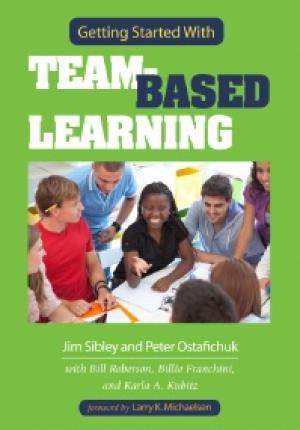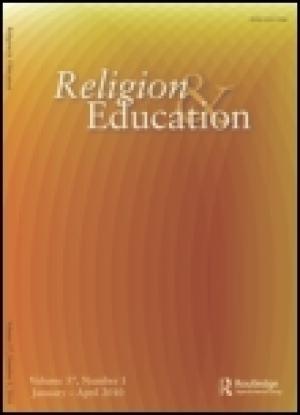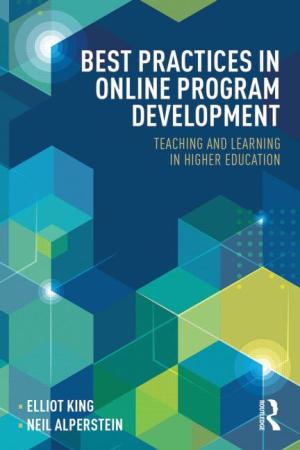Resources
This essay describes a transformation in my experience as an adjunct teaching underprepared students from one of shame toward a desire to assert the value of this work. Insights from my feminist theological training helped me to affirm the importance of encouraging transformative learning in teaching the academically marginalized and prompted my analysis of student writing in an introductory World Religions course, in order to determine whether or not the course was a site of transformative learning. I argue that despite many contextual limitations, the movement toward deepening self-awareness and increasing openness to religious diversity seen in student writing demonstrates that transformative learning began in this course, and that is valuable for students' lives whether or not they are academically successful.
The article is a response to this journal's call for papers on metaphors for teaching, and also draws from a previous publication in which Kent Eilers developed a methodology for teaching global theologies. In this methodology, the ultimate goal was the development of “hermeneutical dispositions of empathy, hospitality, and receptivity toward culturally diverse voices” (2014, 165). This article considers the goals of Eilers' methodology, and others like his, and how it is that the metaphors of “leaving home” and “communal imagination” highlight the importance of the ambient and interpersonal features of a classroom and their effect on the attainment of the above goals. In so doing, it extends the conversation beyond content and methodology in teaching theology and religion into the realms of philosophy of education, as well as the fields of moral and values education. It is contended that the metaphors informed by these areas of study facilitate the attainment of such goals, and similar ones, by demonstrating that the cultivation of an ambience of care, trust, and compassion within the classroom constitutes an essential foundation for learning in which students “leave home” and cultivate “communal imagination.” The article finishes with practical suggestions for educators in theology and religion.

Click Here for Book Review Abstract: This book is written for anyone who has been inspired by the idea of Team-Based Learning (TBL) through his or her reading, a workshop, or a colleague’s enthusiasm, and then asks the inevitable question: how do I start? Written by five authors who use TBL in their teaching and who are internationally recognized as mentors and trainers of faculty making the switch to TBL, the book also presents the tips and insights of 46 faculty members from around the world who have adopted this teaching method. TBL is a uniquely powerful form of small group learning. It harnesses the power of teams and social learning with accountability structures and instructional sequences. This book provides the guidance, from first principles to examples of practice, together with concrete advice, suggestions, and tips to help you succeed in the TBL classroom. This book will help you understand what TBL is and why it is so powerful. You will find what you need to plan, build, implement, and use TBL effectively. This book will appeal to both the novice and the expert TBL teacher. (From the Publisher)

Click Here for Book Review Abstract: Case method teaching immerses students in realistic business situations--which include incomplete information, time constraints, and conflicting goals. The class discussion inherent in case teaching is well known for stimulating the development of students' critical thinking skills, yet instructors often need guidance on managing that class discussion to maximize learning. "Teaching with Cases" focuses on practical advice for instructors that can be easily implemented. It covers how to plan a course, how to teach it, and how to evaluate it. The book is organized by the three elements required for a great case-based course: 1) advance planning by the instructor, including implementation of a student contract; 2) how to make leading a vibrant case discussion easier and more systematic; and 3) planning for student evaluation after the course is complete. Teaching with Cases is ideal for anyone interested in case teaching, whether basing an entire course on cases, using cases as a supplement, or simply using discussion facilitation techniques. To learn more about the book, and to see resources available, visit teachingwithcases.hbsp.harvard.edu. (From the Publisher)

In this text, university teachers from Eastern Europe, Western Europe and North America report on their efforts to prepare students for engaged democratic citizenship. Their case studies illustrate methods employed to prepare citizens for meaningful participation in democracies, whether long-standing, young or emerging. The contributors describe their approaches in detail, reflecting on the philosophical and pedagogical considerations being employed, as well as exploring models of experiential service-learning, action research, and other curricular innovations. Stakeholders are encouraged to replicate, modify or entirely recast the ideas presented, in the interest of building capacity within their institutions, peers and partners to realize and maintain the promise of democracy. (From the Publisher)
Based on archival research, this article analyses the pedagogical gestures in Derrida’s (largely unpublished) lectures on hospitality (1995/96), with particular attention to the enactment of hospitality in these gestures. The motivation for this analysis is twofold. First, since the large-group university lecture has been widely critiqued as a pedagogical model, the article seeks to retrieve what may be of worth in the form of the lecture. Second, it is relevant to analyze the pedagogy of lectures that address the topic of hospitality, as there would be a performative contradiction in teaching inhospitably about hospitality.
Hospitality in the classroom and digital pedagogical practices encourage participatory pedagogy and collective action. This model of learning and teaching emphasizes the shared responsibility between all members to contribute to and actively further the intellectual exchange and critical inquiry of the course; indeed, this model of learning can frame how we understand subjectivity itself.
This essay examines the gap between the dominant ethical frameworks for education and ideas about subjectivity, and proposes an ethic of hospitality as a framework that assumes a decentered subjectivity. First, I provide a brief overview of the ethics of autonomy, virtue, and care and highlight the conception of the subject that informs each of them. Second, I outline some philosophical critiques of the subject, as well as misunderstandings about the “death” of the subject. It should then be clear that there is a tension between new ideas about subjectivity and the ethical frameworks of autonomy, virtue, and care. Finally, I propose an ethic of hospitality and make suggestions for how this ethic might inform educational practice. 

Journal Issue.

Click Here for Book Review Abstract: Best Practices in Online Program Development is a practical, hands-on guide that provides the concrete strategies that academic and administrative departments within institutions of higher learning need to develop in order to create and maintain coherent and effective online educational programs. Unlike individual courses, an online education program requires a comprehensive, inter-departmental effort to be integrated into the ongoing educational project of a college or university. This book focuses on the: Integration of online education into the institutional mission Complex faculty-related issues including recruiting, training, and teaching Multifaceted support required for student retention and success Need for multilayered assessment at the course, program, technical, and institutional levels Challenges posed to governance and by the need to garner resources across the institution Model to insure ongoing, comprehensive development of online educational programs Best Practices in Online Program Development covers the above topics and more, giving all the stakeholders in online educational programs the building blocks to foster successful programs while encouraging them to determine what role online education should play in their academic offerings. (From the Publisher)
Wabash Center Staff Contact
Sarah Farmer, Ph.D
Associate Director
Wabash Center
farmers@wabash.edu